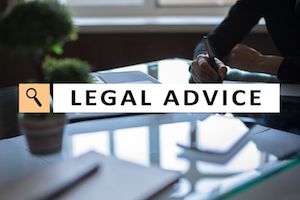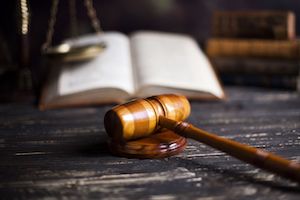If you’ve been arrested in North Carolina and released from jail, you should have in your Possession a Release Order and other supporting documents regarding the criminal charges.
On that paperwork is a statement of the charges, the case number, and most likely a court date and courtroom number for your appearance in court.
Don’t worry if you lost your materials or you somehow left jail without them, defense lawyers can normally obtain copies of the originals from the court file or the DA’s Office. Make sure you know if and when you need to in court next, thereby avoiding an Order for Arrest or “OFA.”
Thereafter, sitting down and talking with an experienced criminal defense attorney is a good idea.
Frankly, it doesn’t matter if you face allegations of felony or misdemeanor charges in North Carolina. The point is to immediately seek legal representation, protect your legal rights, and get information about what to do next after getting arrested.
Part of that involves preparing a defense strategy, and most importantly, understanding the process of criminal charges working through the court system. One of those procedural steps, if you were arrested for a felony in North Carolina, may involve a Probable Cause Hearing.
Defense lawyers spend a lot of time explaining how things work to clients and their family. Even people with a long rap sheet (criminal record) may not fully understand the legal procedures, especially if they previously represented themselves pro se in court.
There’s nothing complicated about the term “pro se.” It just means “for himself,” and refers to the person facing criminal charges and the decision to speak for himself in court without the benefit of legal counsel or a defense attorney.
“I personally believe that to be a mistake, in that handling criminal charges, especially serious felonies, can be pretty complicated. But in North Carolina, you’re allowed to serve as your own attorney. Sometimes that works out and sometimes not so much.” Bill Powers
The term “Probable Cause” often refers to the evidence necessary to charge or arrest. It’s based, at least in part, on suspicion of criminal activity being “afoot.” You may have also heard it referred to as Reasonable Grounds to arrest.
Probable Cause is different than Reasonable Suspicion, requiring a greater Burden of Proof and evidence. Reasonable Suspicion requires more than a hunch or feeling. It must be supported by specifics, facts that may be described or “articulated” with particularity.
You may have even heard something like, “No warrant shall issue except for Probable Cause,” not knowing it’s an important and fundamental protection of the 4th Amendment under the US Constitution.
The Fourth Amendment is applied to North Carolina criminal charges under the 14th Amendment of the US Constitution and the Equal Protection laws.
Probable Cause is a more demanding standard and relates to the nature and sufficiency of the evidence necessary to issue a Search Warrant or Warrant for Arrest.
Should I Waive Probable Cause? What is a Waiver of Probable Cause? ![Should I Waive Probable Cause?]()
A Waiver of Probable Cause is a “term of art” used by defense lawyers, prosecutors, and Judges in North Carolina.
The Probable Cause, or more importantly, the Waiver of Probable Cause, relates to an important stage in the criminal process and how the specific criminal charges are handled in court.
Chances are, if you’ve been asked to sign a Waiver of Probable Cause, you’re in District Court for a Felony charges in North Carolina. It also likely means you’re out of jail, having posted bond (bailed out) or are subject to some other condition of release.
If that’s the case, executing a Waiver of Probable Cause may be the smart way to go. It may prevent getting re-arrested after the case is sent to the Grand Jury for Indictment, unless you refuse to waive your right to a PC Hearing.
What is an Indictment?
Defense lawyers refer to it as “PC” or a “PC Hearing.” PC stands for Probable Cause.
There is technically a legal right to a Probable Cause Hearing in NC, or at least a finding of Probable Cause. At the same time, as our courts and the NC court system have been flooded with an overwhelming number of cases, there just isn’t time enough to conduct such hearings.
As a result, it’s become outdated to do PC Hearings. The Pine State has grown too big. There are just so many criminal cases and so little court time to dispose of legal issues. Indeed, many lawyers and judges may never have seen a Probable Cause Hearing.
“ When I first started practicing law in 1992, we still did Probable Cause hearings in Charlotte (Mecklenburg County). Even smaller districts in Monroe NC, Gastonia, and Statesville don’t seem to have the time anymore. Now you either waive or send the case to the Grand Jury” - Bill Powers, NC Criminal Defense Attorney
The purpose of the District Court Probable Cause Hearing is to ensure the basic precepts of the 4th Amendment and criminal procedures as set forth Chapter 15 and Chapter 15A in North Carolina are followed.
In order for felony criminal charges to proceed forward in the process, making their way to Superior Court, there must be either a finding of Probable Cause or a waiver.
That can be done in one of 3 ways:
- Probable Cause Hearing in District Court
- Waiver of Probable Cause
- Indictment by Grand Jury
For a sample NC Waiver of Arraignment form, click here.
Helpful Information About Criminal Charges 
 Powers Law Firm PA Home
Powers Law Firm PA Home















